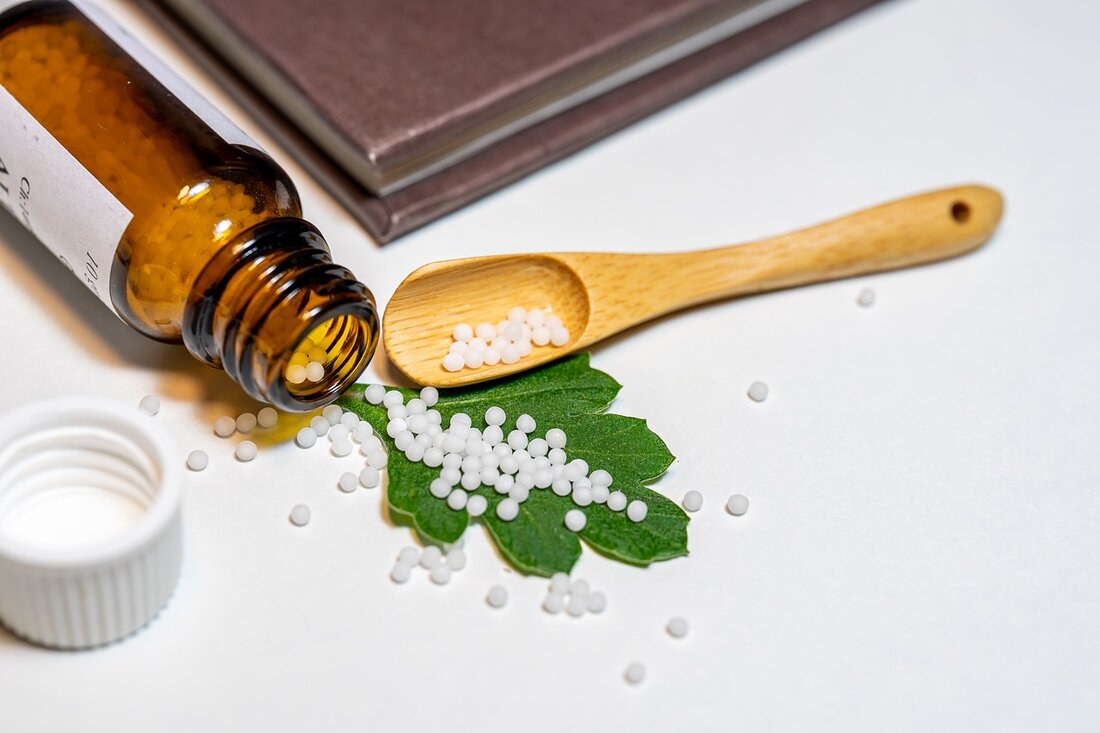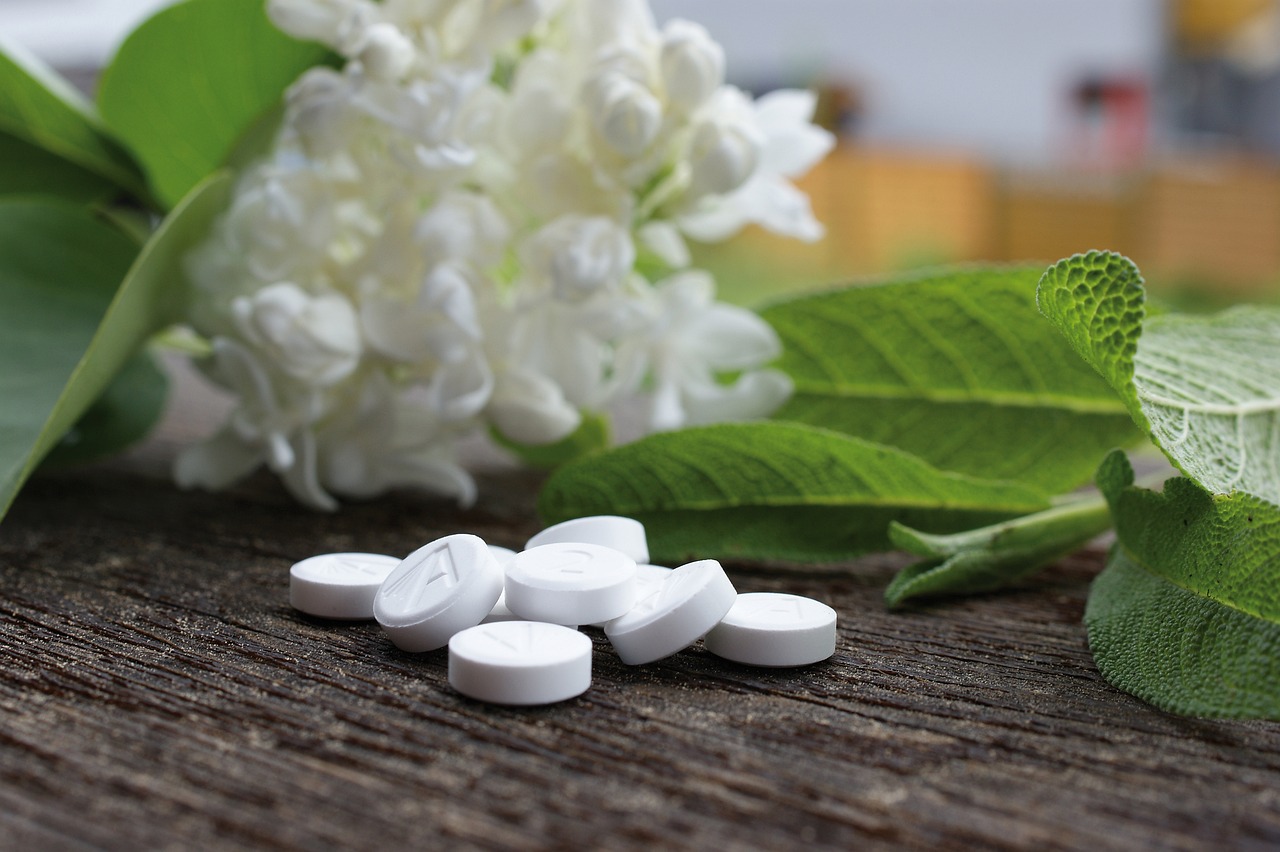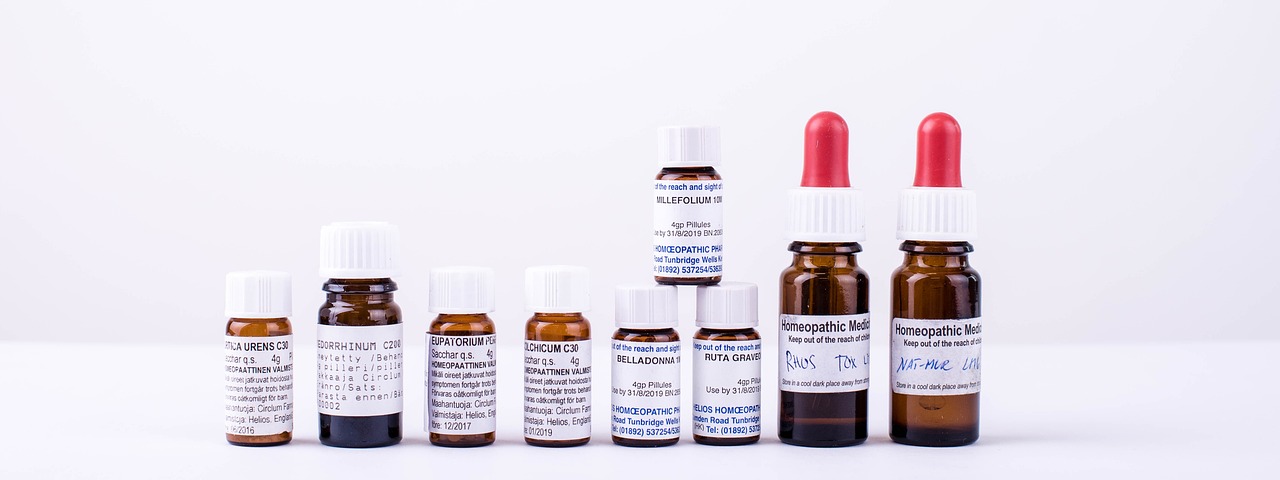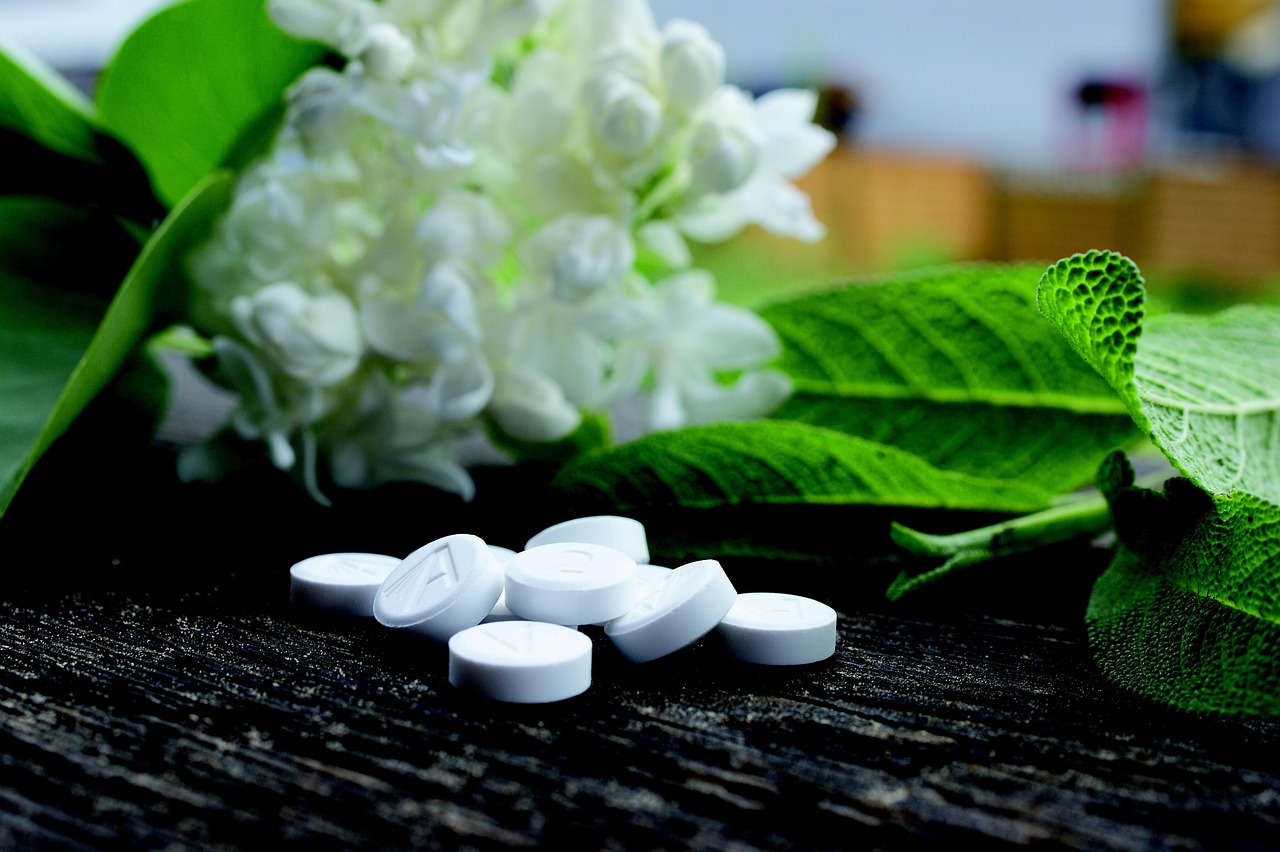Homeopathy reveals: healing art or hocus -pocus? Facts and experiences!
Discover homeopathy: its principles, areas of application, criticism and personal experiences. A comprehensive overview of this alternative healing method.

Homeopathy reveals: healing art or hocus -pocus? Facts and experiences!
Homeopathy is an alternative healing method that was developed by the German doctor Samuel Hahnemann over 200 years ago. It is based on the principle of "healing something similar", which means that a substance that causes certain symptoms in a healthy person is used in a very diluted form for the treatment of similar symptoms. This method has spread worldwide and is valued by many people as gentle and holistic therapy that supports the body in its self -healing. Although homeopathy is controversial in the scientific community, numerous users swear by their effectiveness with a variety of symptoms, acute illnesses to chronic suffering. This article illuminates the basics, areas of application and the discussions about this fascinating healing art.
Introduction to homeopathy

Homeopathy is an alternative healing method that was founded in 1796 by the German doctor Samuel Hahnemann. It is described as a pseudo -scientific system, since its foundations and mechanisms of action do not match the findings of modern medicine. Nevertheless, it has won a significant supporter over the centuries and has been widespread in many parts of the world to this day. In order to understand homeopathy, it is important to look at their central principles and historical development, which are discussed intensively by supporters and critics. A detailed overview shows how this method has developed from an innovative idea to a controversial approach in healing art. For further information on the historical and scientific classification of homeopathy, the Wikipedia page on homeopathy a comprehensive foundation.
The central basic principle of homeopathy is "similar with the like" (Similia Similibus Curentur). This means that a substance that causes certain symptoms in a healthy person can be used in a strongly diluted form to treat similar symptoms in a patient. This principle, which is considered a basic procedure of homeopathy, was developed by Hahnemann after he found that Chinese binds, which is used at Malaria, triggered symptoms -like symptoms in healthy malaria. The concept of such a basic principle that defines a method or application can also be found in other areas, such as in technical systems, and is detailed in DWDS entry to the basic principle explained. In homeopathy, this principle is implemented by the production of so -called "drugs" or "remedies", which is produced by repeated dilution and shaking (potentiation), often until no molecule of the original substance is more detectable.
The history of homeopathy begins at the end of the 18th century, when Hahnemann first published his ideas. He was dissatisfied with the medical practices that were common at the time, such as bloodletting or the use of toxic substances, and looked for a gentler alternative. His method quickly gained popularity, particularly in the 19th century when homeopathy gained popularity in Europe and North America. It was introduced in the USA in 1825, and numerous homeopathic institutions and schools were established by 1900. Homeopathy was valued as a less invasive option to the often brutal treatment methods of the time. Hahnemann also introduced the concept of “miasms,” which attributed chronic illnesses to underlying, invisible causes – a theory that is, however, scientifically untenable and not accepted in modern medicine.
At the end of the 19th century, however, the popularity of homeopathy began to reduce because scientific medicine made progress and gained evidence -based approaches in importance. In the United States in 1920 the last only homeopathic medical school closed its doors. Nevertheless, homeopathy in the 1970s experienced a revival that was accompanied by the new-aging movement and increasing skepticism towards synthetic chemicals and conventional medicine. Many people searched for holistic and natural healing methods, which gave homeopathy new boost. It is practiced worldwide today, whereby the regulation varies greatly: While some countries integrate them into their national health systems, others do not recognize them or even took measures to limit their distribution.
The scientific community is largely critical of homeopathy. Extensive studies and meta-analyses, particularly in the 21st century, have shown that homeopathic preparations are biochemically inert and have no detectable effect against known diseases. Clinical studies have failed to demonstrate objective effects, and theories such as miasms are incompatible with modern understanding of the causes of disease. As a result, several countries, including Australia, the United Kingdom and France, have made recommendations not to provide government funding for homeopathic treatments. In England, the National Health Service (NHS) stopped funding in 2017, France followed suit in 2021, and Spain plans to ban homeopathy. Ethical concerns are also raised as misleading claims and delays in effective treatments can cause potential harm.
Despite the criticism, homeopathy remains diverse in practice. It is applied not only in humans, but also in veterinary medicine, although studies also indicate ineffectiveness and animal welfare concerns. In addition, legal steps against misleading advertising for homeopathic products have emphasized the need for consumer protection. While homeopathy is a valuable addition or alternative to conventional medicine for some, it remains a controversial field that stands between personal conviction and scientific skepticism. Their history and principles reflect both the desire for gentle healing methods and the challenges to reconcile them with modern scientific standards.
Mode of action and principles

Homeopathy is based on two central concepts that shape their application and philosophy: the principle of "similar healing similar" and the potentiation of medicinal products. These principles have been developed by Samuel Hahnemann, the founder of homeopathy, in the late 18th century and still form the basis of this alternative healing method. While the principle of similarity determines the selection of funds, potentiation plays a decisive role in the production and dosage of homeopathic preparations. Both concepts are closely linked and should encourage the body's self -healing powers. In order to better understand these ideas, it is worth taking a look at their origin and meaning, which are discussed intensively by supporters and critics. For a well -founded introduction to the principle of similarity, the page of the Homeopathy Research Institute valuable information.
The principle “like cures like”, in Latin “Similia similibus curentur”, is the heart of homeopathy. It states that a substance that can cause certain symptoms in a healthy person can be used in minimal doses to treat similar symptoms in a sick person. Samuel Hahnemann formulated this law in 1796 after self-experiments with cinchona, which caused malaria-like symptoms in healthy people but was effective in the treatment of malaria. The term “homeopathy” itself is derived from the Greek words “homoios” (similar) and “pathos” (suffering) and reflects this concept. Hahnemann, who rejected the medical practices of the time such as bloodletting or the administration of mercury as harmful and speculative, looked for a therapy based on precise observations and experiences. He tested numerous substances on healthy people and found that the symptoms caused by these substances were similar to those of diseases that they could treat in diluted form. For further historical details about Hahnemann's life and work, see the site KL Homeopathy Lucerne A well -founded overview.
In homeopathy, this principle is underpinned by concrete examples that show parallels to conventional medicine. For example, digitalis, which causes cardiac arrhythmias in high doses, can be used in low doses to treat such disorders. Similarly, Ritalin, an amphetamine-based medication, is used in ADHD patients, although it has a stimulating effect in other contexts. The desensitization of allergies, in which small quantities of an allergen are administered to mitigate a reaction, also shows similarities to this approach. This concept of hormesis - that can be useful in small quantities, while they are harmful in large quantities - is not unknown in science, but is used in homeopathy in a way that goes beyond the measurable doses and often leads to the area of extremely high dilutions.
Here the potentiation comes into play, another central concept of homeopathy that defines the production of medicinal products. Potentation means that an initial substance is diluted and shaken repeatedly to increase its effect. Hahnemann believed that this process released the "spiritual power" of the substance, while toxic effects are eliminated. Molecules of the starting substance are still detectable in low potencies, such as up to C12 or D24, and these funds are often used for acute symptoms. In higher potencies that go far beyond these dilution levels, no molecules of the original substance are contained. Nevertheless, homeopaths claim that these highly potentiated means have a greater effect, which is strongly controversial in the scientific community, since no measurable mechanism of action could be demonstrated. In many countries, toxic starting materials are only available in higher potencies for safety reasons to avoid poisoning.
Potentiation and the principle of similarity are closely linked, since dilution is not only intended to ensure the safety of the remedies, but also aims to strengthen the specific effect on similar symptoms. Hahnemann also recommended using only a single drug at a time in order to be able to accurately assess the effect, which emphasizes the individualization of the treatment to the patient. While proponents of homeopathy argue that this method activates the body's self-healing powers, the mechanism of action, especially at high potencies, remains scientifically unclear. Critics complain that the extreme dilutions can often only cause placebo effects because there are no longer any active ingredients present. Nevertheless, potentization remains a fascinating concept that sets homeopathy apart from other healing methods and shapes its use.
Together, these concepts form the basis of homeopathic practice, which aims to treat the body holistically by not suppressing symptoms, but stimulating them with similar stimuli for healing. The discussion about the effectiveness and the scientific background of these principles is still alive and reflects the tension between traditional approaches and modern evidence. For many users, however, homeopathy remains a valuable alternative or addition to conventional medicine, which is based on individual experiences and a gentle approach.
Areas of application

Homeopathy is used worldwide as an alternative healing method and covers a wide range of ailments, from acute illnesses to chronic conditions. It aims to activate the body's self-healing powers by using individually tailored remedies based on the patient's specific symptoms and constitution. It is often valued as a gentle therapy that is used both for everyday complaints and for more complex health problems. The areas of application are diverse and include both physical and psychological symptoms, with treatment often taking place alongside conventional medicine. In order to deepen the use of homeopathy for specific complaints such as nerve pain, the site offers Hello homeopathy Detailed insights and examples of homeopathic remedies.
Homeopathy is particularly popular for acute illnesses because it is considered gentle and has few side effects. Common areas of use include colds, flu, injuries such as bruises or sprains and acute pain. For example, for colds, remedies such as Belladonna for sudden fever or Aconite are used at the first signs of a cold with restlessness. Homeopathic preparations such as Nux vomica or Arsenicum album are also used for acute digestive problems, such as diarrhea or nausea. These remedies are intended to work quickly and relieve symptoms by supporting the body in its natural response. Many users turn to homeopathy to treat acute complaints without the use of strong medication, especially in children or sensitive people.
Another important area is the treatment of chronic diseases, for which homeopathy is often used over long periods of time. These include illnesses such as chronic pain, migraines, allergies, skin problems such as eczema or psychological complaints such as anxiety and sleep disorders. For chronic pain, especially nerve pain (neuralgia), specific remedies are selected depending on the type and location of the pain. For example, Spigelia is recommended for left-sided trigeminal neuralgia or ear pain, while Zincum metallicum is used for tingling pain or numbness in the arms and legs. In homeopathy, the treatment of chronic conditions requires a detailed anamnesis in order to find the appropriate remedy that takes into account not only the symptoms but also the patient's underlying constitution.
Another relevant area of application is heart problems, where homeopathic remedies can be used to relieve symptoms and stabilize the body. These symptoms can occur in healthy people due to muscle tension, but should also be checked for serious heart disease. Agents such as digitalis are used for early heart failure with symptoms such as edema or cough, while Iberis amara is said to be helpful for hard, irregular heartbeats following infections. The site provides detailed information on homeopathic approaches to heart problems Hello homeopathy a comprehensive overview of specific remedies and their application. However, it is important to emphasize that in the case of serious heart problems, conventional medical evaluation and treatment should always be the priority.
In addition, homeopathy is often used for diseases of the musculoskeletal system, such as rheumatic complaints or joint pain. Remedies such as Rhus toxicodendron are used for pain that improves with exercise, while Bryonia is used for pain that is relieved with rest. Homeopathy is also widely used in pediatrics, for example for teething problems, colic or infectious diseases. Chamomilla is a well-known remedy for teething pain that is also used for irritability and restlessness. The gentle effects of homeopathic remedies make them attractive to many parents, although scientific evidence for their effectiveness is limited.
In addition to these physical complaints, homeopathy also plays a role in the treatment of psychosomatic and emotional problems. It is used for stress, burnout, grief or mild depression, with remedies such as Ignatia for emotional shocks or Natrum muriaticum for chronic sadness. The holistic view of the patient, which includes both physical and psychological aspects, is a central component of homeopathic practice. This makes them a valuable supplement or alternative to conventional medicine for many users, especially if they are looking for individual solutions.
In summary, it can be said that homeopathy is used in a variety of areas, from acute, self -limiting diseases to complex chronic conditions. The selection of the funds is based on a detailed description of the symptom and the individual response of the patient, which the therapy designs very personally. While the effectiveness of homeopathy remains controversial in the scientific community, many users report positive experiences, especially in the case of complaints that are not directly life -threatening. The wide range of possible uses shows that homeopathy is an accessible and flexible option for many people to gently support their health.
Criticism and controversy

Since its inception, homeopathy has been at the center of intense debate, particularly in the scientific and medical community. While many users report positive experiences, critics classify the method as unscientific and ineffective. This discussion primarily revolves around the lack of evidence for the effectiveness of homeopathic remedies as well as the theoretical foundations that appear to be incompatible with the principles of modern medicine. The controversy has not only academic, but also social and political implications, as decisions on the financing and regulation of homeopathy are being made in several countries. The article provides a well-founded overview of the scientific criticism of homeopathy Quarks.de a detailed analysis of the current research situation.
A central point of criticism of homeopathy is the lack of demonstrable effect of its preparations. Homeopathic remedies, often in the form of globules, are produced through the process of potentization, in which the active ingredient - for example belladonna - is extremely diluted. At high levels of potency such as D24 or C12, the probability of finding even a single molecule of the original active ingredient is negligible. Homeopaths claim that the effectiveness increases with each dilution, but this is not scientifically verifiable. The “water memory” theory, which states that water can store the properties of the active ingredient, is also strongly doubted because there is no convincing evidence for this. These basic assumptions of homeopathy contradict the principles of chemistry and physics, which discredits the method in the eyes of many scientists.
Scientific research on homeopathy shows a consistently critical picture. A meta-study from 1997, published in the renowned journal “Lancet”, found insufficient evidence for the effectiveness of homeopathic remedies in the treatment of illnesses. Later studies, for example from 2014 and 2017, confirmed these results and could not provide reliable evidence of a therapeutic effect. Although positive effects were found in some studies, the quality of these studies was often criticized as they often had methodological weaknesses or distortions (bias). A comprehensive meta-analysis found that the therapeutic success of homeopathy performed poorly in carefully conducted, controlled studies. In addition, a review study with 30 papers and over 1,159 patients pointed out that homeopathic remedies can even be harmful in some cases, especially if they delay necessary conventional medical treatment.
In addition to the lack of evidence, the ethical dimension of homeopathy is also criticized. Many doctors and scientists see it as problematic that patients rely on a therapy that has no demonstrable effect and may therefore forego effective treatments. This can have fatal consequences, particularly in the case of serious or life-threatening illnesses. Even manufacturers such as the German Homeopathic Union (DHU), a large producer of homeopathic remedies in Germany, emphasize that homeopathy is not a panacea and should be viewed as a supplement to conventional medicine. However, the marketing of such products often remains misleading, which reinforces accusations of deception. The site provides further information on alternative medicine and a differentiated view of homeopathy NetDoctor a well-founded basis that illuminates both the application and the criticism.
The debate about the effectiveness of homeopathy also has political and social consequences. In several countries, including Great Britain, France and Australia, the state financing of homeopathic treatments was discontinued or severely restricted because the scientific basis is missing. In Germany, on the other hand, homeopathy continues to be taken over by some health insurance companies as an additional service, which heats up the discussion about the role of alternative medicine in the health system. Critics argue that the resources should be better invested in evidence -based therapies, while supporters refer to the demand for patients and their subjective experiences. This polarization shows that homeopathy is not only a medical, but also a cultural and emotional topic.
Despite the overwhelming scientific criticism, there is a group of users who are convinced of homeopathy and should not be underestimated. Many report positive experiences, especially with mild or psychosomatic complaints, which are often attributed to placebo effects or intensive care by homeopaths. However, scientists emphasize that such effects cannot be equated with a specific effect of the means. So the discussion remains complex: while homeopathy is a valuable addition for some, others see it as a threat to public health. The gap between personal belief and scientific evidence is likely to continue and shape the debate about homeopathy.
Regulation and training

Homeopathy is widespread worldwide, but the legal framework and training of homeopaths differ significantly between different countries. These differences not only reflect cultural and historical developments, but also the respective attitudes towards alternative medicine and its integration into the healthcare system. While some countries regulate homeopathy as a recognized form of therapy and integrate it into their national health structures, others consider it unproven and restrict its use. Likewise, the training requirements for homeopaths vary, from formalized courses to less structured programs. An overview of these framework conditions shows how differently homeopathy is perceived and practiced globally. The site offers a more in-depth look at regulatory medicine, to which homeopathy is often included Stecher shilling valuable insights into their approaches and goals.
In Germany, homeopathy enjoys comparatively high acceptance and is legally well anchored. It is viewed as part of naturopathy and regulatory medicine, which aims to promote the balance of body, mind and soul. Homeopathic remedies are subject to the Medicines Act, and their production and sales are strictly regulated. Doctors and naturopaths are allowed to use homeopathy, whereby doctors can acquire an additional name "homeopathy", which is obtained from the medical association. This further training includes theoretical and practical content as well as an exam. Alternative practitioners, on the other hand, do not need specific homeopathic training, but have to take a general exam in order to be able to practice. Some statutory health insurance companies cover the costs of homeopathic treatments as a voluntary additional service, which makes the method accessible to many, even though it remains scientifically controversial.
Homeopathy is also recognized in Switzerland and is reimbursed by many health insurance companies as part of supplementary insurance. Since 2017, together with other complementary medical methods, it has only been part of the compulsory performance catalog of basic insurance, but only if it is carried out by a doctor with appropriate further training. The training as a homeopath is formalized in Switzerland: Doctors have to complete further training, which is organized by the Swiss Medical Association for Homeopathy (SVHA). There are private schools and certificates for non-medical homeopaths, but they are not always recognized by the state. The legal situation shows a balance between the promotion of alternative healing methods and ensuring quality standards in training and practice.
In France, however, the legal situation has worsened in recent years. Until 2021, homeopathic treatments were partially covered by national health insurance, but reimbursement was stopped due to a lack of scientific evidence. Homeopathic remedies may still be sold, but are subject to strict labeling requirements indicating that their effectiveness has not been proven. The training of homeopaths is not uniformly regulated in France; Doctors can continue their training through private institutes, while non-medical practitioners often work without formal recognition. This development reflects the growing skepticism towards homeopathy in French health policy, which is increasingly relying on evidence-based medicine.
Homeopathy is also controversial in the United Kingdom. The National Health Service (NHS) largely hired the financing of homeopathic treatments in 2017 because studies did not provide any convincing evidence of their effectiveness. Homeopathic remedies are still available, but their marketing is strictly regulated to avoid misleading health promises. Homeopaths are formed usually via private colleges that offer courses and diplomas, but they are not recognized by the state. Doctors who want to practice homeopathy can train themselves through organizations such as the Faculty of Homeopathy, but these qualifications have no official status in the medical system. The legal situation in the United Kingdom shows a clear separation between alternative therapies and conventional medicine.
In India, however, homeopathy is firmly anchored in the healthcare system and enjoys great popularity. It is regulated by the Ministry of AYUSH (Ayurveda, Yoga & Naturopathy, Unani, Siddha and Homoeopathy) and there are numerous government-recognized colleges that offer a Bachelor of Homoeopathic Medicine and Surgery (BHMS). This course lasts five years and includes an internship, similar to medical school. Homeopaths in India have a comparable status to doctors of conventional medicine and can work in hospitals and clinics. This strong institutionalization makes India one of the world's leading countries in the use and training of homeopathy, which is also due to the cultural acceptance of traditional and alternative healing methods.
The legal framework and training standards for homeopaths vary significantly and often depend on the respective social and political attitude towards alternative medicine. While countries such as India and partly Germany and Switzerland promote and regulate homeopathy, others such as France and the United Kingdom rely on stricter controls and a distancing state support. For a critical examination of homeopathy as a so-called stimulating regulation therapy, the page offers Network homeopathy A differentiated perspective on the terms and concepts. These global differences make it clear that homeopathy remains a controversial field that navigates between tradition, personal conviction and scientific skepticism.
Experience reports and case studies

Homeopathy has a large followers worldwide, and many people report on personal experiences that underpin their conviction of this alternative healing method. These individual reports and documented cases offer insights into the application of homeopathy in a variety of symptoms, from acute illnesses to chronic suffering. Although the scientific evidence for the effectiveness of homeopathy remains controversial, subjective experiences play a central role in the popularity of this form of therapy. The following examples and experience reports illustrate how homeopathy is used in everyday life and what importance it is for users. The site offers for a collection of such personal stories Homeopathy helps a platform on which those affected and experts share their experiences.
A frequently mentioned aspect in personal reports is the application of homeopathy in children, where parents often look for gentle alternatives to conventional medication. For example, Jens Krauter, a graduate engineer for electrical engineering, describes how homeopathy plays an important role in his family. He had positive experiences in particular in his son, for example in the treatment of colds or minor injuries. The gentle effect of the globules and the possibility of foregoing chemical medication were crucial for him. Such reports reflect how homeopathy is often seen as the first choice in the event of non -life -threatening complaints, especially when parents seek natural support for the health of their children.
Even in chronic or psychosomatic complaints, many users report on improving their quality of life through homeopathy. Hiltrud Albers, a social worker, emphasizes that she had experienced a significant relief from her symptoms through homeopathic treatments. She advocates patient -oriented medicine that puts individual needs in the foreground and emphasizes how homeopathy helped her deal with long -term health challenges. Such experiences show that homeopathy is not only therapy for many, but also a holistic approach, the body and mind is equally taken into account and is often used in combination with other methods.
Experts who have practiced homeopathy or have experienced themselves also contribute to the distribution of positive reports. Dr. med. Stefanie Merse, who has been in contact with homeopathy since childhood, reports that she had her own children treated in an integrative medicine and achieved impressive results. It emphasizes that homeopathic medicines can have an effect if they are selected to match the patient. Dr. is also fascinated med. Patrik Maximilian Jenny, a general practitioner, of the diversity of the effects of homeopathy. He treats his patients regularly with homeopathic means and often observes positive changes, especially in complaints that are difficult to treat with conventional methods.
Another report comes from Dr. med. univ. Eva Koll, an assistant doctor, who emphasizes the importance of complementary methods such as homeopathy, especially when conventional treatments reach their limits. She describes cases in which patients found relief through homeopathy after years of unsuccessful conventional medical therapy. Such experiences underline the role of homeopathy as a complement to conventional medicine, as seen by many users and experts. These individual stories make it clear that the effects of homeopathy are often perceived subjectively and depend heavily on personal attitudes and expectations.
In addition to these personal reports, there are also platforms that promote a broader discussion about experience with homeopathy. The Homeopathy blog invites readers to share their own experiences with globules and other homeopathic remedies. In the comments, users report using it for a wide variety of complaints, from allergies to sleep disorders to acute pain. Such forums not only provide space for the exchange of positive experiences, but also for critical voices, which reflects the diversity of opinions on homeopathy. The blog itself also provides information about political developments and the homeopathy community, which helps users stay informed about current debates.
This collection of experiences shows that homeopathy is valuable support in dealing with health challenges for many people. Whether it is acute illnesses such as colds, chronic complaints such as pain or psychosomatic problems - the individual reports are characterized by a therapy that is often perceived as gentle and personally. While the scientific community continues to question the effectiveness of homeopathy, subjective experience remains a central factor for its continuing popularity. These personal stories illustrate that homeopathy is not only a medical method, but also an expression of individual values and beliefs, affect health and healing.
Sources
- https://en.wikipedia.org/wiki/Homeopathy
- https://www.dwds.de/wb/Grundprinzip
- https://www.hri-research.org/de/informationsquellen/homeopathy-faqs/gleiches-heilt-gleiches/
- https://kl-homoeopathie-luzern.ch/klassische-homoeopathie/geschichtliches/
- https://www.hallo-homoeopathie.de/anwendung/nervenschmerzen
- https://www.hallo-homoeopathie.de/anwendung/herzbeschwerden
- https://www.quarks.de/gesundheit/medizin/homoeopathie-wissenschaftlich-nicht-nachvollziehbar/
- https://www.netdoktor.de/alternativmedizin/homoeopathie/
- https://www.stecher-schilling.de/regulationsmedizin/
- https://netzwerk-homoeopathie.info/keine-reiz-regulations-therapie/
- https://www.homoeopathie-hilft.info/erfahrungen-mit-homoeopathie/
- https://homoeopathiewatchblog.de/2018/10/12/patienten-stories-kommentare/

 Suche
Suche
 Mein Konto
Mein Konto